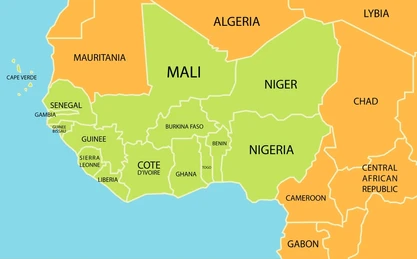Introduction:
On 7th January 2025, President Nana Akuffo Addo Dankwa (Nana Addo), delivered his last State of the Union Address (SONA) to the Ghanaian people through parliament to recount his stewardship of the country over the last four years of his tenure. As a parliamentary convention of Ghana’s democratic system, the Speaker of Parliament invited the minority and majority leaders of both the National Democratic Congress (NDC) and New Patriotic Party (NPP) to share views on the President’s SONA. On his part, Afenyo Markin, leader of the then NPP majority, offered series of statements in support of his government’s achievements on education, remarking as framed in the above title, that “Technical/Vocational education is the preserve for people in lower ebb of the Ghanaian society.” This blogpost finds this statement disturbingly antiquated and naïve for the reasons outlined below.

Traditional academic and Technical Education
More traditional academic education – often associated with GCSEs and A Levels – prioritises the acquisition of theoretical knowledge, mostly delivered through classroom-based learning. The knowledge is then assessed through methods such as written assignments or timed examinations. In contrast, vocational and technical education (also known as VTE) in United Kingdom (UK) and other developed states, emphasises practical skill development and hands-on training, preparing individuals for immediate entry into the workforce. VTE programmes, such as apprenticeships, Technical Levels, BTECs and VCerts, prepare students with specialised skills and knowledge for the practical demands of the workplace, thereby playing unique and critical roles in enhancing the technological developments of countries, particularly Ghana, if the government shows the right commitment.
The Contribution of Technical/Vocational Education to National Development
VTE education contributes enormously in driving the core technological and developmental architecture of all developed states in the northern-hemisphere because it offers hands-on learning for real-world skills. Unlike traditional classrooms, VTE programmes emphasise hands-on learning and practical application. Students gain mastery through direct experience with tools, equipment, and processes, ensuring they develop the specific skills employers seek. It provides direct entry into the workforce- VTE learners can often transition seamlessly into the workforce, bypassing the need for further study or internships. Also, it provides Industry-specific skills- VTE programmes are designed in collaboration with industry experts, ensuring that the curriculum aligns with current workforce demands and technological advancements. This close industry connection makes graduates highly employable, with the relevant skills to excel in their fields. Furthermore, it genders Job-specific credentials- VTE programmes often lead to industry-recognised certifications or licenses, which serve as a testament to an individual’s skills and knowledge. These credentials carry significant weight with employers, opening doors to promising job opportunities. Moreover, VTE ensures earning potential- many VTE fields offer competitive salaries and opportunities for advancement, providing a clear path to financial stability and career growth. Other benefit of VTE is filling the skills gap- VTE plays a crucial role in addressing labour shortages in skilled trades and technical fields. By equipping individuals with the necessary expertise, VTE helps bridge the gap between employer needs and workforce capabilities. It secures Lifelong learning and adaptability- VTE programmes often emphasise continuous skill development and adaptability, preparing individuals to navigate evolving industries and technological advancements. This fosters resilience in a rapidly changing job market by offering concrete opportunities to hone creative skills of the youth in promoting national agenda, especially in the spheres of technology and digitisation. However, classifying VTE as a preserve of the lower population in the Ghanaian society betrays illusion and limited knowledge of the current minority leader. This is because without a well-resourced VTE Ghana, and by extension Africa’s quest to secure independent socio-economic development will not be achieved.
The Illusion of VTE Education in Ghana and Africa: The Naivety of the Minority Leader
The statement by Afenyo Markin (the current Minority leader of NPP) in describing VTE education as the preserve of the lower group in the Ghanaian society is not only an expression of naivety, but a lop-sided and antiquated thinking characterising the bland strategic view of past Ghanaian political leaders and some African governments. Perhaps, the minority leader imbibed such thinking from the past school of thought in which case he should be pardoned. Over the years, VTE has been derogatively considered by Ghanaian politicians and government officials and sadly some educators as a forum for the unintelligent in society. Unfortunately, a similar view was peddled by the vice-presidential candidate- Matthew Opoku Prempeh (NAPO) of the New Patriotic Party (NPP), branding teachers and teacher training education as unacademic, a mere manifestation of pride and hubris. It is expected that the results of the 2024 general election will tutor him some lesson in humility and respect for people. This blogpost refutes this held illusion, which is firmly ingrained in some Ghanaian politicians, government officials and part of society; and help them to recognise the prominence of VTE as a critical component of Ghana’s educational strategy to promote the socio-economic growth development of the nation. Without well-resourced VTE institutions, furnished with 21st century equipment, buildings, good salaries for lecturers, coupled with adequate financial backing, the proposed vision of successive governments, especially the current NDC government, will fail to achieve the objective of securing jobs for the youth and reset the country’s socio-economic and political fortunes. How can Ghana continue to depend on foreign nations for technical expertise in building its roads, hospitals and many other critical infrastructures while the University of Science and Technology and many VTE institutions abound in the country? At 67 years of independence and still relying on foreign experts to construct Ghana’s essential infrastructural projects is a leadership failure.
VTE needs Re-thinking in Ghana and Africa
Technical and vocational education training (TVET) is increasingly being viewed as an antidote to the main developmental challenges in many regions of the world, which have resulted in growing inequalities in wealth distribution. Whereas TVET was once regarded as a ‘second-choice’ educational option, recent evidence suggests that well-designed TVET programmes can be more effective than general (or academic) education for integrating groups that are marginalised. Evidence from Germany and France shows that apprenticeship training results in faster and more organised entry into the labour market than purely school-based TVET programmes, because closer links are established with the private sector. Countries with well-established dual training systems, such as Denmark, Austria and Germany, have been more successful than other countries in maintaining low youth unemployment rates and lower repeated unemployment spells among youth. So, Mr JDM, take a cue from the above and focus on TVET as part of your vision and strategy to reset Ghana because fusing both sectors of the education system with the requisite funding and dedication will help in repositioning Ghana, thereby addressing the perennial challenges of youth unemployment.
Technical/Vocational Education for Ghana’s Socio-economic Development
According to the World bank, effectiveness of VTE requires that training be linked to demonstrated job availability or be integrated with efforts to expand self-employment or to establish small businesses. Experience in developing countries, including Chile and Mexico, suggests that effectiveness is improved by decentralizing publicly subsidized training to local labour markets through competitive contracting for services from employers, private training providers, and public training institutions. Accountability can be improved by linking funding to placement outcomes. While this blogpost is not discounting the enormous contribution of formal university education, it is advocating that the current government re-strategise TVE as a component of national development agenda with resources to champion the technical skills requirements of the country. Ghana’s socio-economic transformation will be realised and sustained if TVE is accorded rightful space in the national scheme of planning because the era of digitisation and technology require more practical skillsets, which is readily offered by TVE institutions.
Final Remarks
The creative contribution of TVE to promote the socio-economic growth and expansion of developed countries can also be replicated in Ghana and by extension Africa, if political leadership re-orients national and continental direction to fuse both systems of education strategically with adequate funding. The examples of Austria, Denmark, France, Germany, and UK , are worthy of emulation in that regard. Thus, the view that TVE is the preserve of the lower people in the Ghanaian society resonates with antiquity and belongs the pre-historic era. And that must be told to all the political class and people in Authority, loudly.




